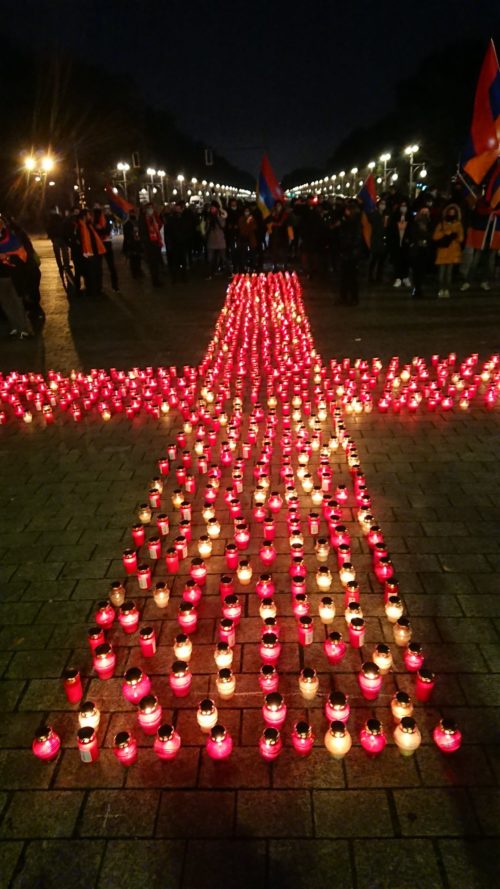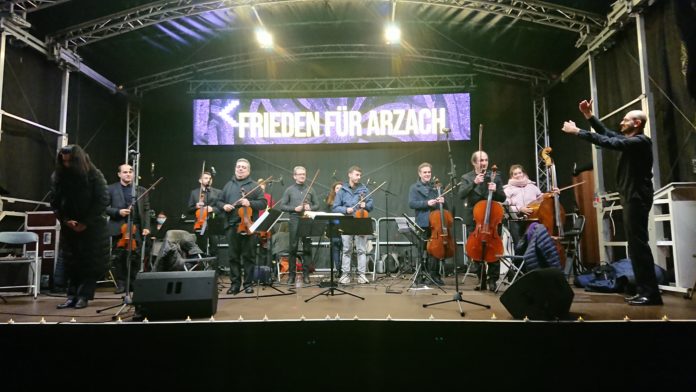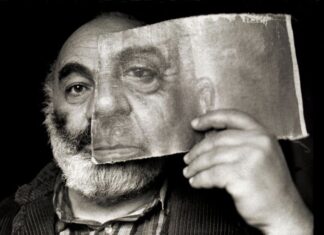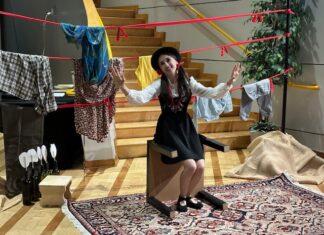BERLIN — Walking up towards the Brandenburg Gate, you see on the ground a myriad of small red votive candles, lined up in rows to form a huge cross. Behind it, on a stage, an orchestra plays a piece by Komitas. It is November 6 in Berlin, and people have been gathering throughout the afternoon, to take part in an event dedicated to peace in Berg Karabakh. They have been visiting information stands to find out about the conflict, have seen works on exhibit by Berlin artist Mischa Badasyan and have listened to speakers from the political and cultural world address the issue.
Following the speeches, each person received a votive candle, proceeded to place it on the ground. First the bare outline of the cross came into being, then candle after candle was added, until the enormous cross-filled and dominated the broad space in front of the majestic Brandenburg Gate.
It was not an event by Armenians for Armenians, as Shushan Ghazaryan chairwoman of the German-Armenian Student Club HAIK explained, but an informative gathering, where people could learn about the conflict. The students were not organizing a demonstration or a protest action, but a cultural event dedicated to peace.
Serim Dagdelen, a member of the Bundestag (Parliament) from the Left Party, said they had gathered at the Brandenburg Gate “out of concern for the people in Berg Karabakh, out of concern for peace in the South Caucasus. We want an end to the bombings, an end to the expulsions, we want peace in Berg Karabakh.“ Dagdelen said reports were arriving almost by the hour, of severe bombings by the Azerbaijan army; “again civilians are being killed and wounded, again homes are being burned; a human catastrophe is looming in the region,” she warned.

Referring back to the resolution passed in the Bundestag on June 2, 2016, which recognized the Armenian genocide, she said it had not been easy to organize the votes. But “now, four years later, when people in Berg Karabakh are being attacked by Azerbaijan, and by Islamist killers,” when Turkish drones and Erdogan’s advisors are involved, “the Bundestag must not remain silent. We have a responsibility and we must live up to it.”
Martin Kranz, a leading figure in cultural activities in Weimar, spoke of genocide happening now — “a genocide towards one nation.” This is something that can be neither accepted nor ignored: “we as part of German society, must raise our voices, and reject this.” He said he had come to “tell Armenians that we are definitely on your side.”









